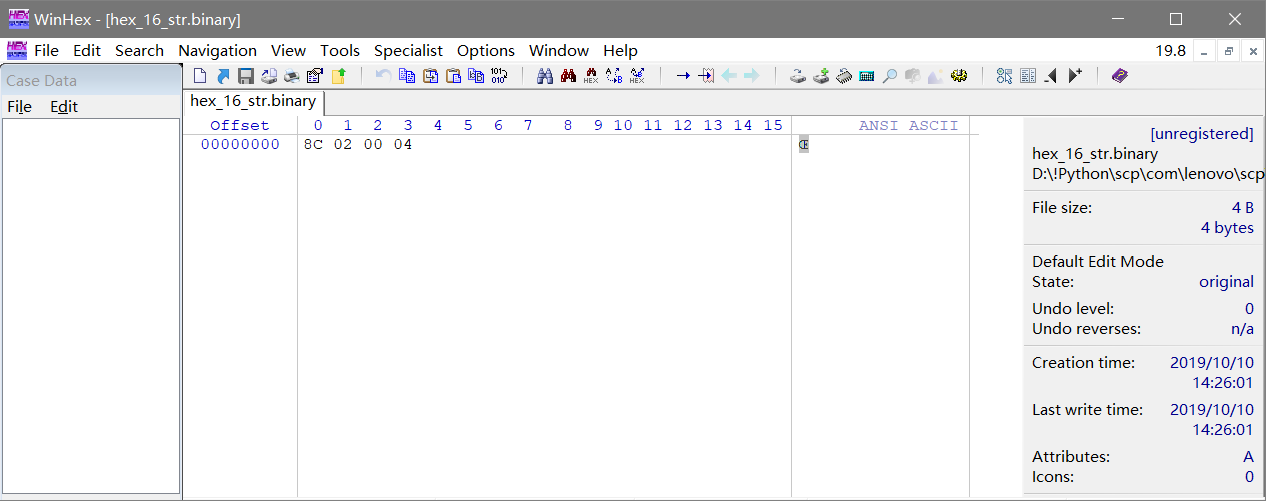Python向檔案寫入二進位制程式碼,字串轉換等
阿新 • • 發佈:2019-10-10
Python平臺:Python 2.7
二進位制程式碼檢視工具:WinHex
假設我們有如下16進位制程式碼,需要當成binary檔案寫入:
output_code = """00400000,24090002
00400004,21280004
00400008,00082021
0040000c,24020001
00400010,0000000c"""
那麼只需要使用bytearray.fromhex方法,它會直接將8位16進位制的字串轉換成相應binary:
file1 = open('byte_file', 'wb') output_code = output_code.split('\n') for line in output_code: print line file1.write(bytearray.fromhex(line.split(',')[0])) file1.write(bytearray.fromhex(line.split(',')[1])) file1.close()
假設我們遇到的是2進位制字串咋辦呢?下面是一個32位的字串:
binary_str = "10001100000000100000000000000100"
# ----------> 123456789 123456789 123456789 12一共32位2進位制數字下面的程式碼能把32位的2進位制str,轉換成8位的16進位制str(2^32 == 16^8):
def transfer_32binary_code(opcode_in): optcode_str = '' for i in range(len(opcode_in) / 4): small_xe = opcode_in[4 * i: 4 * (i + 1)] small_xe = hex(int(small_xe, 2)) optcode_str += small_xe[2] return optcode_str
輸出結果如下:
8c020004
我們將前面的步驟結合起來,寫入一個binary檔案,內容為8c020004,試一試:
file1 = open('hex_16_str.binary', 'wb')
hex_16_str = transfer_32binary_code('10001100000000100000000000000100')
print hex_16_str
file1.write(bytearray.fromhex(hex_16_str))
file1.close()我們通過WinHex開啟儲存的binary檔案,確認寫入的二進位制程式碼符合

